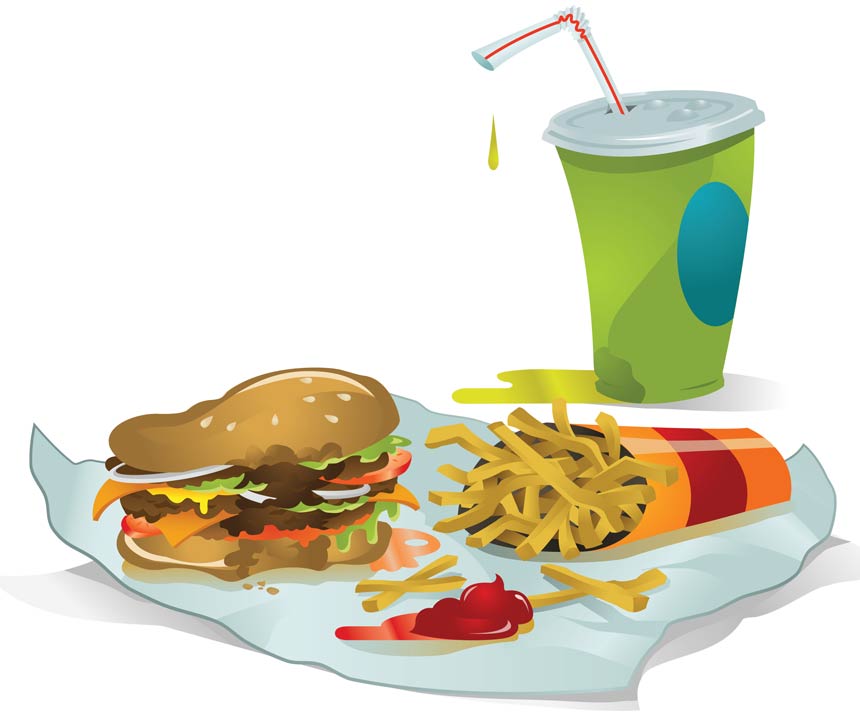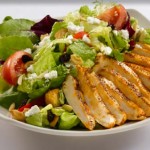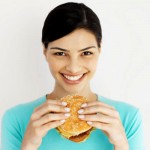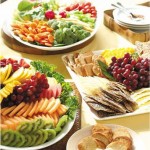I hear the word “fattening” being used extensively by many people on a regular basis, presumably describing the process of ingesting a particular type of food and believing that it alone will make them put on weight (and if not the food as a sole instigator of the weight gain, a large component of it). Out of this a slew of questions arise, coupling the word “fattening” with varieties of different foods in an eager attempt to figure out whether that particular food is edible while attempting to not put on pounds. As a result, the topic of fattening foods arises.
For example: are bananas fattening? Is rice fattening? Are nuts fattening? These are common questions posed by people all the time as they look for a way to enjoy a healthy lifestyle that will help them keep those pounds away. However, there is a very big problem with these questions, and this problem arises from a common myth that we’re going to examine and dismiss.
To begin, there is no single food item that is fattening. Of course, when I refer to a food item I’m referring to a serving size. Therefore, eating a cup of nuts is a food item, as is eating a banana. Eating a whole jar of peanut butter, on the other hand, is clearly not what I’m referring to! With that said, no particular food item is fattening because it does not contain the amount of calories necessary to make you put on fat. Let’s go over a quick summary of why that is and how this whole process works.
In order to put on weight, you need to eat enough food to go over your caloric limit for the day, for at least a couple of days. What this means, is that you need to take in more calories into your body through food than you burn through your activity and every day lifestyle. If this happens over a span of time it will lead to weight gain. This does not happen after one day (unless you’re a competitive hot dog eater?) and it certainly won’t happen due to one meal you ate (unless you really rake it in uncontrollably, but this is really unlikely). Perhaps during the days of fast food king sizes and no diet sodas this was a bit more likely to occur from one meal, but it is highly improbable now so let’s not focus on it. Just understand that this is the process required to put on weight – eating above your maintenance.
The term fattening then, can only mean an amount of calories that will put you over your daily limit. Again, no single food item can do this to you. As we just mentioned, since you’d have to really go for the gold to have a meal do this to you, a particular food can’t be fattening. Therefore, bananas aren’t fattening. Nuts aren’t fattening, and neither is rice (the examples we’ve been using). Keeping this in mind, it is not the type of food that matters as much as the quantity of it. Sure, a couple of slices of pizza aren’t fattening because they don’t equal remotely enough calories to put you over the amount you need to start putting on weight gradually, but a pie and a half may be a different story. As far as nuts go, for example, you’d probably have to eat a huge Costco bag to have some problems. Having some nuts here and there will not hurt your weight!
I bet many people wouldn’t claim that salads are fattening, right? Well, you’d be surprised. Loading a salad with high calorie dressing and mozzarella balls might raise your salad to the level of a burger if you’re not careful. Again, what’s important is calorie levels and quantity, not the type of food (for body composition).
Understanding that foods are not “fattening” is important because it allows us to enjoy what we like as long as we use sensible portions and know when to eat certain things over others. For example, if you’ve been eating ice cream and Wendy’s all day, is it wiser to finish off with some pizza or some grilled chicken and veggies? The latter, of course. It is lower in calories, and will limit your total intake for the day when compared to the pizza which will only exacerbate it. Does that make the pizza itself fattening? No, but coupled with the high calorie meals and snacks you’ve been eating throughout the day might mean that it’ll put you over your maintenance calories for the day, which is what we’re trying to limit.
A good example I often use when discussing items that are supposedly fattening, is to imagine two different eating scenarios for the day. In the first, imagine the example given above. You’ve been eating high calorie foods all day and you want to continue with an evening snack that consists of another high calorie food, is there a chance you’ll go over your daily requirement? Yes. In the second, imagine you’ve barely eaten all day. If you have that same high calorie food, will it matter? No, it’ll actually do your body good because you certainly don’t want to starve yourself.
I understand that many people can claim that a food is fattening because it is high calorie per serving, but that does not make it fattening. Bananas are higher in calories than grapes, that doesn’t mean bananas anything in the grand total of the day as long as you are able to understand that you can’t constantly pig out. Sure, have a high calorie meal, but make sure you follow it up with a lower calorie meal. Moderation is the key. This also means that you don’t need to avoid certain foods, as long as you understand some are more calorie dense than others and you take that into account. For a better understanding of this, check out our Clean Foods Bad Foods: Benefits of Both article. Good luck!
Incoming search terms:
- fattening foods







